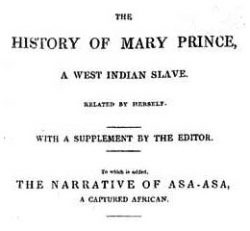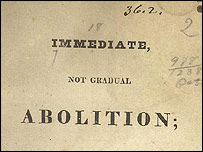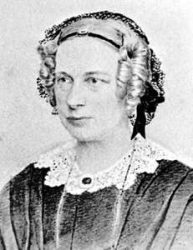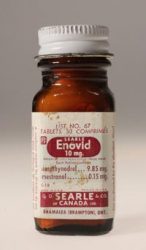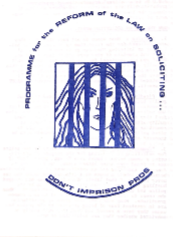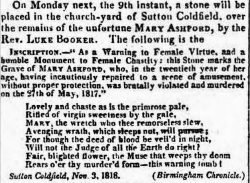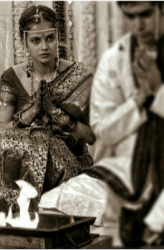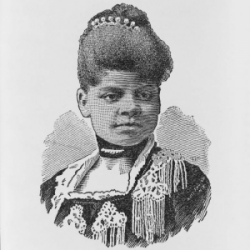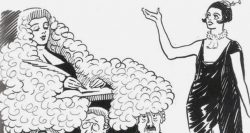By Elizabeth Lawal Mary Prince was born into slavery in Brackish Pond, Bermuda in 1788. Mary and her siblings were raised by her mother until she was twelve, when she was sold for £38 to a new master. She married Daniel James, a slave who had bought his freedom, in 1826. This marriage angered her … Continue reading “Mary Prince and the Birmingham Ladies’ Society for the Relief of Negro Slaves”
Elizabeth Heyrick and The Birmingham Ladies’ Society for the Relief of Negro Slaves
By Seunfunmi Tinubu Elizabeth Heyrick was born as Elizabeth Coltman in Leicester She was exposed to the writings of Thomas Paine, one of the most influential authors of the American revolution, as a child. On March 10th, 1787, she married John Heyrick, a Methodist lawyer. When John died 8 years later, Elizabeth became a Quaker. The … Continue reading “Elizabeth Heyrick and The Birmingham Ladies’ Society for the Relief of Negro Slaves”
After 1967: The struggle to obtain abortion and the creation of BPAS
By Candace Miles Before 1967, the illegality of abortion left many women with no choices around pregnancy. Contraception was not freely available through the NHS, and could be obtained only by married women. Wealthier women had access to the right resources, discretely obtaining private abortions. However, thousands of poor, unmarried women with unwanted pregnancies were … Continue reading “After 1967: The struggle to obtain abortion and the creation of BPAS”
Mary Carpenter and the Birmingham Conference on Juvenile Justice
By Farah Sayeed Juvenile delinquency gradually emerged at the forefront of legal debate during industrialisation, where property laws governing a new urban society caused a rise in the number of juveniles being prosecuted. Peter King notes that juvenile delinquency was, “[…] given a further boost by the strategic use that urban magistrates made of the … Continue reading “Mary Carpenter and the Birmingham Conference on Juvenile Justice”
Birmingham Women’s Clinic
By Amiel Lynch Although contraception is taken for granted today, the history of the struggle for this right is complex. Birmingham played a central role in providing access to this right. Politically and legally birth control was contentious and the movement of contraception from the private sphere of influence to the public mirrored the changing … Continue reading “Birmingham Women’s Clinic”
Programme for the Reform of the Law on Soliciting (P.R.O.S.)
By Eugene Huang Being a sex worker in the 70s and 80s was not easy. Although prostitution itself did not violate the law, numerous activities associated with it were prohibited. This essay focuses on prostitution law around the 1980s and its influence on women by reviewing the campaign of the Programme for Reform of … Continue reading “Programme for the Reform of the Law on Soliciting (P.R.O.S.)”
The murder of Mary Ashford
By Ryan Keating On 26 May 1817, Mary Ashford, a 20-year-old general servant and housekeeper, attended a dance at the Tyburn House in Warwickshire. Also in attendance was a 24-year-old labourer, Abraham Thornton. According to witnesses, Thornton was heard using ‘gross and obscene language’, boasting that he would become intimate with Mary. Later, they danced … Continue reading “The murder of Mary Ashford”
Rev. James Peggs and the Campaign to Outlaw Sati in India
Author: Daminee Budhi The Story of the Burning Widow The word sati in India is synonymous with ‘good wife’, originating from an Indian myth of the Sati, the Goddess Durga, who self-immolated because she was unable to bear her husband, Shiva’s, humiliation. The Indian practice of sati, which Reverend James Peggs zealously campaigned to outlaw, … Continue reading “Rev. James Peggs and the Campaign to Outlaw Sati in India”
Ida B. Wells and the Birmingham Connection
Author: Latoya Farrell Ida B. Wells, an anti-lynching activist in the United States, was born the eldest of eight children to slave parents.[1] In 1883, she moved to Memphis where her “love of liberty and self-sufficiency” founded her efforts in challenging systemic racism and institutional injustices suffered by Afro-Americans.[2] One such instance occurred on a … Continue reading “Ida B. Wells and the Birmingham Connection”
Introduction
This blog is part of a wider project showcasing a selection of the assessed work done by students of Gender and the Law at Birmingham Law School in 2017-2018. The purpose of the project is to prompt students, staff and visitors at the Law School to explore women’s local legal history. The project is inspired … Continue reading “Introduction”


